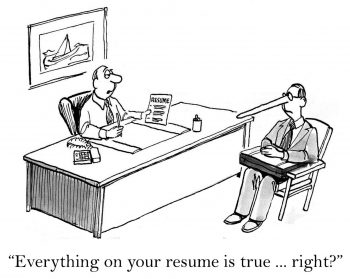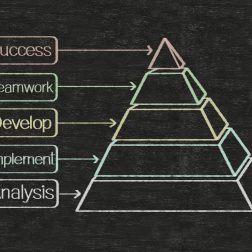 I recently experienced another hand-to-the-forehead moment. Here’s what I overheard: “We’ve hired him; now let’s assess him and see what we’ve got!” All I could do was shake my head and sigh.
I recently experienced another hand-to-the-forehead moment. Here’s what I overheard: “We’ve hired him; now let’s assess him and see what we’ve got!” All I could do was shake my head and sigh.
I understand that hiring can be one of the most difficult aspects of a job, often with a high failure rate that comes with a hefty price tag. An obvious solution to this all-too-common issue is to use hiring assessments.
The whole point of having a quality behavioral hiring assessment at your disposal is to assess candidates before you hire them and use the feedback during the interview to clarify strengths, weaknesses and fit before you make a job offer.
Once someone is hired, you can’t turn back the clock. Many times, assessing after the fact alerts you to the unfortunate reality that this person should have never been offered a job in the first place.
With this in mind, here’s a summary of 10 huge hiring mistakes that you may have seen before, but remains 100% relevant and is worth repeating:
- “I’m not quite sure what we need, but this guy sounds like a miracle worker.” First, do your homework on a proper job description. Then make sure the applicant’s credentials on their résumé and behavioral assessment feedback results are a fit before you proceed with the interview. And, beware of miracle workers.
- “He’s not quite what I’m looking for, but I think he is trainable.” This is the inverse of the first mistake—you know what you want but are trying to force the situation and make yourself believe the candidate could be a good fit for the position. Maybe you are desperate to fill the position, the candidate is related to “somebody,” or you just don’t feel like you have the time to do your due diligence. (Remember to make the time in this instance!)
- “I’m confident this candidate can learn a lot from me.” This is an arrogant attitude suggesting that you know more than anyone you might hire, so all you need is a helper, not help. Helpers are expensive, since it often takes longer to jointly do a job than it would take for one qualified person to do it alone. Don’t be afraid to hire people who are smarter than you.
- “I didn’t have time to read the résumé, but he has great answers.” Some people talk a good story, but can’t produce results. Résumés won’t give you an objective conclusion, but they can highlight negatives like job gaps, bad writing and minimal experience. Once you have identified the behind-the-scenes behavioral tendencies of a person (via assessment), you can then dig deeper during the interview to weed out the good talkers.
- “He couldn’t keep up with me on results, but we have to start somewhere.” It’s always a mistake to judge a candidate by using yourself as the bar. You should assume that you are looking for someone who has skills you don’t have.
- “This one is such a good fit that I don’t need to waste time on a second interview.” No matter how good you are, we can all miss things the first time around. Never hire someone without a second interview, and without having a second interviewer verify your assessment. Everyone you hire has to fit effectively with many team members. This also goes with assessment—don’t skip assessing someone just because you think he/she is a good fit. Assessing all final candidates makes it a level playing field. Assess and then verify your hunches during the interview.
- “After my sales pitch, he was so excited, I knew he could do the job.” Some hiring managers spend the interview selling the company under some mistaken impression that the level of candidate excitement is indicative of future performance.
- “He’s not perfect, but our only alternative is to let the work stack up even more.” This is pure desperation, guaranteed to have bad results. If you hire someone who can’t do the job, the work backs up more, and your work doubles to get them replaced.
- “His experience is light, but he seems like a good guy.” Avoid evaluating personality in lieu of job skills or behaviors. All the statistical research shows that there is very little correlation between a good personality and any specific job. There is a correlation between job skills and behaviors (and yes, behaviors and personality are different). Look for job knowledge first and behavioral fit second. The world is full of really “good guys” who lack the specific behaviors to be successful.
- “Based on the glowing review I heard from my friend, I’ll just skip the reference check.” There are a lot of factors that can’t be assessed in an interview or by listening only to an advocate. In this litigious society, reference checks are more productive if you also listen to what is not said.
Hiring is difficult so don’t beat yourself up about past mis-hires, but DO learn from your mistakes and DON’T take the easy way out. Establish your hiring process, always do your due diligence, and use one or more quality hiring assessments so you can get a glimpse beneath the surface of a candidate during your interviews.
If you’ve learned any lessons the hard way that haven’t been covered here, please share your story here.



